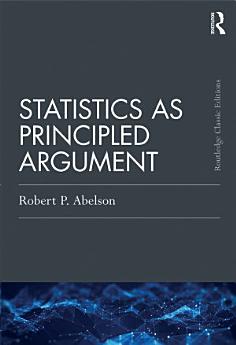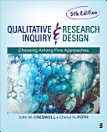Statistics as Principled Argument
About this ebook
The focus of the book is that the purpose of statistics is to organize a useful argument from quantitative evidence, using a form of principled rhetoric. Five criteria, described by the acronym MAGIC (magnitude, articulation, generality, interestingness, and credibility) are proposed as crucial features of a persuasive, principled argument. Statistical methods are discussed, but with minimum use of formulas and heavy data sets. The ideas throughout the book revolve around elementary probability theory, t-tests, and simple issues of research design. Many examples are included to explain the connection of statistics to substantive claims about real phenomena.
This remarkably engaging read is filled with fascinating real-life (and real research) examples rather than simply recipes for analysis. Abelson’s insights generate true interest for beginning graduate students and seasoned researchers alike, and will be invaluable to students, scholars, researchers, and practitioners who use statistics within their research.
About the author
Robert P. Abelson was a professor in the psychology and political science departments at Yale University. He made foundational contributions to social psychology, political psychology, and cognitive science, as well as important contributions to statistics.





